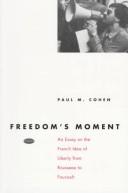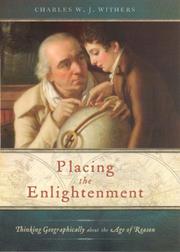| Listing 1 - 10 of 15 | << page >> |
Sort by
|
Book
ISBN: 0520945948 1282763938 9786612763939 9780520945944 Year: 2010 Publisher: Berkeley University of California Press
Abstract | Keywords | Export | Availability | Bookmark
 Loading...
Loading...Choose an application
- Reference Manager
- EndNote
- RefWorks (Direct export to RefWorks)
The Lost Boys of Zeta Psi takes us inside the secret, amusing, and sometimes mundane world of a California fraternity around 1900. Gleaning history from recent archaeological excavations and from such intriguing sources as oral histories, architecture, and photographs, Laurie A. Wilkie uncovers details of everyday life in the first fraternity at the University of California, Berkeley, and sets this story into the rich social and historical context of West Coast America at the turn of the last century. In particular, Wilkie examines men's coming-of-age experiences in a period when gender roles and relations were undergoing dramatic changes. Her innovative study illuminates shifting notions of masculinity and at the same time reveals new insights about the inner workings of fraternal orders and their role in American society.
Greek letter societies --- Male college students --- Masculinity --- Gender identity --- History. --- Conduct of life. --- Psychology. --- Sexual behavior --- Zeta Psi Fraternity --- University of California, Berkeley --- 1900. --- america. --- american society. --- archaeological excavation. --- archaeology. --- architecture. --- behind the scenes. --- biographical. --- california. --- college men. --- coming of age. --- discussion books. --- first fraternity. --- frat history. --- frat house. --- fraternal orders. --- gender roles. --- gender studies. --- growing up. --- historical perspective. --- masculinity. --- mens society. --- oral histories. --- photographs. --- school. --- secret world. --- social context. --- university fraternity. --- university of california berkeley. --- west coast life. --- zeta psi.

ISBN: 0814784143 0814784305 9780814784303 9780814782828 0814782825 0814782752 9780814782750 Year: 2004 Publisher: New York, NY
Abstract | Keywords | Export | Availability | Bookmark
 Loading...
Loading...Choose an application
- Reference Manager
- EndNote
- RefWorks (Direct export to RefWorks)
Sororities are often thought of as exclusive clubs for socially inclined college students, but Bound by a Mighty Vow , a history of the women's Greek system, demonstrates that these organizations have always served more serious purposes. Diana Turk explores the founding and development of the earliest sororities (then called women's fraternities) and explains how these groups served as support networks to help the first female collegians succeed in the hostile world of nineteenth century higher education. Turk goes on to look at how and in what ways sororities changed over time.
Greek letter societies --- College fraternities --- College sororities --- Fraternities --- Sororities, Greek letter --- Societies --- History. --- Kappa Alpha Theta --- Kappa Alpha Theta Fraternity --- Kappa Alpha Theta Fraternity for Women --- 378.4-055.2 --- 378.4 <73> --- 378.4 <73> Universiteiten--Verenigde Staten van Amerika. VSA. USA --- Universiteiten--Verenigde Staten van Amerika. VSA. USA --- History --- Universiteiten--Vrouwen
Book
ISBN: 9798890861498 1469669668 9781469669663 9781469669656 146966965X 9781469672106 1469672103 9781469669649 1469669641 Year: 2022 Publisher: Chapel Hill : The University of North Carolina Press,
Abstract | Keywords | Export | Availability | Bookmark
 Loading...
Loading...Choose an application
- Reference Manager
- EndNote
- RefWorks (Direct export to RefWorks)
"Combining firsthand observation with thoughtful analysis and research culled from sociology, cognitive psychology, biology, economics, and history, this thought-provoking book provides a clear-eyed look at contemporary Greek life on US college and university campuses. As higher education's most enduring and pervasive single-sex organizations, historically white fraternities and sororities emerge as powerful social influencers that privilege the same-sex platonic friend over other forms of relationship, at their best offering dynamic new relational possibilities along with social and economic security. At their worst, however, they exacerbate campus hookup culture, create fictive family bonds that hoard social and economic opportunity, and distort some of society's most foundational relationship categories, including friend, romantic partner, and family"--
Greek letter societies --- College fraternity members --- College sorority members --- College students, White --- Friendship --- Social aspects --- Social life and customs. --- Sociological aspects. --- Littérature --- Étudiants --- Amitié --- Associations --- Moeurs et coutumes --- États-Unis --- Aspect social --- Littérature --- Étudiants --- Amitié --- États-Unis

ISBN: 0226112918 1281223239 9786611223236 9780226112916 9780226112862 0226112861 0226112853 0226112861 9780226112855 Year: 1997 Publisher: Chicago, Ill. University of Chicago Press
Abstract | Keywords | Export | Availability | Bookmark
 Loading...
Loading...Choose an application
- Reference Manager
- EndNote
- RefWorks (Direct export to RefWorks)
What kind of freedom, and what kind of individual, has the French Revolutionary tradition sought to propagate? Paul Cohen finds a distinctly French articulation of freedom in the texts and lives of eight renowned cultural critics who lived between the eighteenth century and the present day. Arranged not according to the lives and times of its protagonists but to the narrative themes and structures they held in common, Cohen's study discerns a single master narrative of liberty in modern France. He captures these radicals, whose tradition bids them to resist the authority of power structures and public opinion. They denounce bourgeois and utilitarian values, the power of Church and State, and the corrupting influence of everyday politics, and they dream of a revolutionary rupture, a fleeting instant of sometimes violent but always meaningful transgression. An eloquent and insightful work on French political culture, Freedom's Moment also helps explain how France, even as it has oscillated between political stagnation and crisis, has held onto its faith that liberty, equality, and fraternity remain within its grasp. Examines the ideas of Rousseau, Robespierre, Stendahl, Michelet, Bergson, Peguy, Sartre, and Foucault.
Liberty --- Philosophy, French. --- French philosophy --- History. --- Philosophy, French --- History --- freedom, france, french, european, europe, liberty, free, cultural studies, culture, narrative themes, radicals, authority, power structures, public opinion, church and state, religion, government, revolutionary, politics, political, philosophy, equality, fraternity, jean-jacques rousseau, michel foucault, maximilien robespierre, stendhal, marie-henri beyle, jules michelet, henri-louis bergson, charles pierre peguy, jean-paul sartre.
Book
ISBN: 1282602381 9786612602382 9047430433 9789047430438 9789004176997 9004176993 Year: 2009 Publisher: Leiden Boston Brill
Abstract | Keywords | Export | Availability | Bookmark
 Loading...
Loading...Choose an application
- Reference Manager
- EndNote
- RefWorks (Direct export to RefWorks)
The story of Latin American evangelicals doing theology is mostly unknown. In the 1970's there was an important development with the formation of the Latin American Theological Fraternity (FTL). This group spearheaded the theological production in Latin America, marking the beginning of a critical stage in the history of evangelicals in the region. This book deals with the reception history in North America of the FTL and its program. Interamerican theological dialogue is documented and analysed.
Evangelikale Bewegung --- Evangelicalism --- Evangelical religion --- Protestantism, Evangelical --- Evangelical Revival --- Fundamentalism --- Pietism --- Protestantism --- History --- Fraternidad Teológica Latinoamericana. --- FTL --- Latin American Theological Fraternity --- Geschichte 1970-1980 --- Lateinamerika --- Latin America --- Church history --- Theology --- Christian theology --- Theology, Christian --- Christianity --- Religion --- Evangélisme --- Théologie --- Histoire --- Amérique latine --- Histoire religieuse --- Fraternidad Teologica Latinoamericana.
Book
Year: 2014 Publisher: Böhlau
Abstract | Keywords | Export | Availability | Bookmark
 Loading...
Loading...Choose an application
- Reference Manager
- EndNote
- RefWorks (Direct export to RefWorks)
The book depicts the ideological foundations and political practice of pan-German student fraternities (Burschenschaften) in Austria after 1945. The Burschenschaften’s post-war volkish (German) nationalism and interwovenness with the Austrian Freedom Party (FPÖ) receive particular attention. Das Buch stellt die weltanschaulichen Grundlagen und die politische Praxis akademischer Burschenschaften in Österreich nach 1945 dar. Besondere Aufmerksamkeit erfahren der völkische Nationalismus als ideologischer Kern und die Verflechtung von Burschenschaften und Freiheitlicher Partei Österreichs (FPÖ).
Student fraternity --- male society --- pan-Germanism --- nationalism --- right-wing extremism --- far right --- conservatism --- South Tyrol --- VDU (Federation of Independents) --- FPÖ (Austrian Freedom Party) --- Burschenschaft --- Studentenverbindung --- Männerbund --- Deutschnationalismus --- Nationalismus --- Rechtsextremismus --- Konservatismus --- Südtirol --- Hochschulpolitik --- VDU (Verband der Unabhängigen) --- FPÖ (Freiheitliche Partei Österreichs) --- Völkische Bewegung

ISBN: 9780226904054 9780226904078 0226904059 0226904075 1281966851 9781281966858 9786611966850 6611966854 Year: 2007 Publisher: Chicago ; London University of Chicago Press
Abstract | Keywords | Export | Availability | Bookmark
 Loading...
Loading...Choose an application
- Reference Manager
- EndNote
- RefWorks (Direct export to RefWorks)
The Enlightenment was the age in which the world became modern, challenging tradition in favor of reason, freedom, and critical inquiry. While many aspects of the Enlightenment have been rigorously scrutinized—its origins and motivations, its principal characters and defining features, its legacy and modern relevance—the geographical dimensions of the era have until now largely been ignored. Placing the Enlightenment contends that the Age of Reason was not only a period of pioneering geographical investigation but also an age with spatial dimensions to its content and concerns. Investigating the role space and location played in the creation and reception of Enlightenment ideas, Charles W. J. Withers draws from the fields of art, science, history, geography, politics, and religion to explore the legacies of Enlightenment national identity, navigation, discovery, and knowledge. Ultimately, geography is revealed to be the source of much of the raw material from which philosophers fashioned theories of the human condition. Lavishly illustrated and engagingly written, Placing the Enlightenment will interest Enlightenment specialists from across the disciplines as well as any scholar curious about the role geography has played in the making of the modern world.
Enlightenment. --- Geography. --- Philosophy, Modern. --- Philosophy, Modern - 18th century. --- Space. --- Enlightenment --- Philosophy, Modern --- Geography --- Space --- Philosophy & Religion --- Philosophy --- Metaphysics --- Cosmography --- Earth sciences --- World history --- Modern philosophy --- Aufklärung --- Eighteenth century --- Rationalism --- E-books --- Philosophy, Modern - 18th century --- history, historical geography, geographical, enlightenment, age of reason, spatial dimensions, space, location, politics, religion, national identity, navigation, discovery, knowledge, human condition, philosophy, 18th century, social spaces, cosmopolitan networks, exploring, traveling, mathematical cosmography, university, stadial theory, liberty, progress, toleration, fraternity, humanism.
Book
ISBN: 0520967755 9780520967755 9780520294714 0520294718 Year: 2017 Publisher: Oakland, California : University of California Press,
Abstract | Keywords | Export | Availability | Bookmark
 Loading...
Loading...Choose an application
- Reference Manager
- EndNote
- RefWorks (Direct export to RefWorks)
"The study of South Asian music falls under the purview of ethnomusicology, whereas that of South Asian literature falls under South Asian studies. As a consequence of this academic separation, scholars rarely take notice of connections between South Asian song and poetry. Modernizing Composition overcomes this disciplinary fragmentation by examining the history of Sinhala-language song and poetry in twentieth-century Sri Lanka. Garrett Field describes how songwriters and poets modernized song and poetry in response to colonial and postcolonial formations. The story of this modernization is significant in that it shifts focus from India's relationship to the West to little-studied connections between Sri Lanka and North India."--Provided by publisher.
Songs, Sinhalese --- Sinhalese poetry --- Texts --- History and criticism. --- Sri Lanka --- Politics and government --- Foreign relations --- Sinhalese songs --- Sinhalese literature --- Shri Lanka --- Lanka --- Serendib --- Taprobane --- Cellao --- Zeilan --- Serendip --- Sī Langkā --- Sri Lanka Prajathanthrika Samajavadi Janarajaya --- Democratic Socialist Republic of Sri Lanka --- Śrīlaṅkā --- Ilaṅkai --- Ceylon --- HISTORY / Asia / Southeast Asia --- History and criticism --- 20th century. --- community. --- composition. --- contemporary. --- culture. --- modern world. --- music. --- musician. --- musicianship. --- nationalism. --- nationalist thought. --- nationalist. --- poetry. --- political. --- politics. --- pure sinhala fraternity. --- romance. --- singhala song. --- social studies. --- sri lanka. --- sri lankan culture. --- sri lankan music. --- sri lankan people. --- sri lankan poetry. --- standards of excellence. --- wartime. --- world music.

ISBN: 1447302702 1281160024 9786611160029 1847421644 186134841X Year: 2006 Publisher: Bristol, UK : Policy Press,
Abstract | Keywords | Export | Availability | Bookmark
 Loading...
Loading...Choose an application
- Reference Manager
- EndNote
- RefWorks (Direct export to RefWorks)
Paul Spicker's new book takes the three founding principles of the French Revolution - Liberty, Equality, Fraternity - and examines how they relate to social policy today. The book considers the political and moral dimensions of a wide range of social policies, and offers a different way of thinking about each subject from the way it is usually analysed.
Social policy. --- Liberty. --- Equality. --- Common good. --- Good, Common --- Public good --- Political science --- Consensus (Social sciences) --- Justice --- Public interest --- Egalitarianism --- Inequality --- Social equality --- Social inequality --- Sociology --- Democracy --- Liberty --- Civil liberty --- Emancipation --- Freedom --- Liberation --- Personal liberty --- Natural law --- Equality --- Libertarianism --- Social control --- National planning --- State planning --- Economic policy --- Family policy --- Social history --- Brüderlichkeit. --- Gleichheit. --- Freiheit. --- Brüderlichkeit --- Gleichheit --- Freiheit --- SOCIAL SCIENCE --- PHILOSOPHY --- Bien commun. --- Égalite (Sociologie) --- Liberte --- Politique sociale. --- General. --- Political. --- Mental philosophy --- Humanities --- Behavioral sciences --- Human sciences --- Sciences, Social --- Social science --- Social studies --- Civilization --- Social policy --- Egalité --- Politische Gleichheit --- Rechtsgleichheit --- Soziale Gleichheit --- Egalität --- Ungleichheit --- Parität --- Nächstenliebe --- Law and legislation --- Geschwisterlichkeit --- Nächstenliebe --- Fraternity
Book
ISBN: 1283001276 9786613001276 1400836727 9781400836727 9781283001274 9780691128559 0691128553 9780691158013 0691158010 Year: 2011 Publisher: Princeton, NJ
Abstract | Keywords | Export | Availability | Bookmark
 Loading...
Loading...Choose an application
- Reference Manager
- EndNote
- RefWorks (Direct export to RefWorks)
Organized crime is spreading like a global virus as mobs take advantage of open borders to establish local franchises at will. That at least is the fear, inspired by stories of Russian mobsters in New York, Chinese triads in London, and Italian mafias throughout the West. As Federico Varese explains in this compelling and daring book, the truth is more complicated. Varese has spent years researching mafia groups in Italy, Russia, the United States, and China, and argues that mafiosi often find themselves abroad against their will, rather than through a strategic plan to colonize new territories. Once there, they do not always succeed in establishing themselves. Varese spells out the conditions that lead to their long-term success, namely sudden market expansion that is neither exploited by local rivals nor blocked by authorities. Ultimately the inability of the state to govern economic transformations gives mafias their opportunity. In a series of matched comparisons, Varese charts the attempts of the Calabrese 'Ndrangheta to move to the north of Italy, and shows how the Sicilian mafia expanded to early twentieth-century New York, but failed around the same time to find a niche in Argentina. He explains why the Russian mafia failed to penetrate Rome but succeeded in Hungary. In a pioneering chapter on China, he examines the challenges that triads from Taiwan and Hong Kong find in branching out to the mainland. Based on ground-breaking field work and filled with dramatic stories, this book is both a compelling read and a sober assessment of the risks posed by globalization and immigration for the spread of mafias.
Transnational crime --- Organized crime --- Mafia --- Multinational crime --- Transborder crime --- Crime --- Crime syndicates --- Organised crime --- History. --- History --- E-books --- 'Ndrangheta. --- Budapest. --- China. --- Chinese triads. --- Hong Kong. --- Italian mafia. --- Italian migration. --- Italian organized crime. --- Italy. --- Mafiosi. --- New York City. --- Prohibition. --- Reggio Calabria. --- Rome. --- Rosario. --- Russian mafia. --- Russian mobsters. --- Sicilian mafia. --- Sicily. --- Solntsevo fraternity. --- Solntsevskaya. --- Taiwan. --- cartels. --- corruption. --- criminal multinational corporations. --- criminal protection. --- democracy. --- entrenchment. --- generalized trust. --- globalization. --- immigration. --- liberalization. --- mafia emergence. --- mafia families. --- mafia transplantation. --- mafia. --- mafioso. --- open borders. --- organized crime. --- private protection. --- protection money. --- transnational organized crime. --- triads.
| Listing 1 - 10 of 15 | << page >> |
Sort by
|

 Search
Search Feedback
Feedback About UniCat
About UniCat  Help
Help News
News